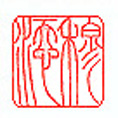— go back
— go back to list of extracts
— skip to next extract

‘You know, Euanthē ’ I said, ‘this breathes the best of the old feudal Greek city-states.’ She nodded, and her eyes were bright. But looking down at the nearest fields, we saw some workmen tending the plantations, with a supervisor who seemed harsh. We heard peremptory shouts, and I thought I saw someone wielding a whip.
‘Those workers,’ I said, ‘even those who are not slaves, are not treated as fellow human beings. Whatever the defects of what Pericles calls “democracy”, I don’t think that we should regret the passing of the old oligarchies and tyrannies.’
Euanthē nodded again. But she said ‘Even so, we should value the good things that people before us were able to do.’ Her complexion was quite dark, and I thought of those other divisions between people which could lead to the foolish and dangerous thought: ‘This one is not one of us; this one is not a fellow being.’
We walked on towards the Philippidæ dwellings. Now, instead of the rough and irregular track which we had taken on the way up, there was a smooth and easy path with fashioned stone paving interspersed with gravel. And instead of the profusion of trees springing new, or proud and adult, or falling to their end, and the rampant and varied underlying vegetation on the upward path, I sensed here the presence of a quiet hand which respected this work of nature, but tended it, with an eye to the pleasures of human denizens.
(3/7)